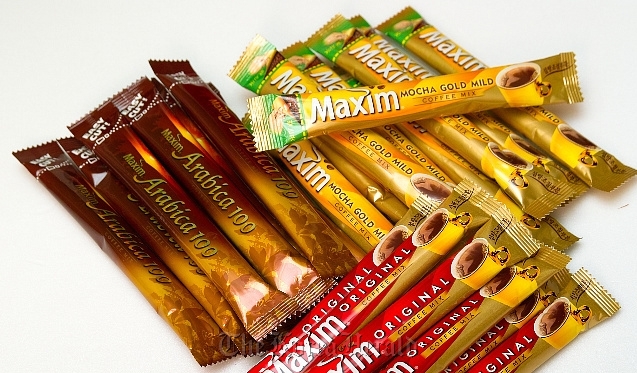Some instant coffee mix producers are tapping or aiming at the global stage amid heated competition in the local market.
Korea’s typical instant coffee product features three-in-one coffee mix sachets containing powdered coffee, powdered cream and sugar for a single serving.
Namyang Dairy has initiated the moves abroad, called “coffee reexports,” by recently making inroads into countries such as China, the United States and Australia.
Though the company’s current sales target in the overseas markets is Koreans residing there, it is seeking to gradually appeal to locals in the foreign countries.

Further, Namyang plans to expand its export destinations to countries including Japan, Southeast Asian countries, the Middle East and Eastern Europe.
Namyang produces about 2 billion coffee mix sachets per annum using facilities within its milk and powdered-milk factories in Gongju and Cheonan in South Chungcheong Province.
It is particularly eyeing the Chinese market where the demand for coffee mix products has risen by more than 12 percent each year since 2005. Nestle of Switzerland and Kraft General Foods of the U.S. are the main suppliers in China.
Namyang, which currently exports “French Cafe” coffee mix products worth about 3 billion won ($2.7 million) annually to China, expects the demand to continue to grow. The company targets 50 billion won in exports to China in 2014.
Some market observers raise the possibility that Seoul Milk, which is scheduled to advance into the instance coffee mix market early next year, may join the local firms’ reexporting movement.
Dongsuh Food, which grabs around 80 percent of Korea’s coffee mix market, and Nestle Korea with market share of 15 percent are closely monitoring the recent steps of Namyang that entered the coffee mix market in 2010.
Dongsuh, as a foreign capital-invested firm, has been passive in tapping the overseas market while the firm pays royalties to Kraft General Foods under technological transfer and joint venture contracts.
The coffee mix business is attractive also because it shows high operating profit to sales ratios of nearly 20 percent, when other items rarely see operating profits of more than 5 percent of revenue.
Driven mainly by the high profitability, Namyang Dairy and Lotte Chilsung Beverage are stepping up efforts to grab a bigger slice of the market.
Since the third quarter of last year, coffee started to account for a larger share of the dairy food producer’s sales than its flagship item powdered milk. The gap has widened with 75.1 billion won in coffee sales and 51.6 billion won in powdered milk sales in the first three months of this year.
By Kim Yon-se (
kys@heraldcorp.com)






![[Herald Interview] 'Trump will use tariffs as first line of defense for American manufacturing'](http://res.heraldm.com/phpwas/restmb_idxmake.php?idx=644&simg=/content/image/2024/11/26/20241126050017_0.jpg)
![[Health and care] Getting cancer young: Why cancer isn’t just an older person’s battle](http://res.heraldm.com/phpwas/restmb_idxmake.php?idx=644&simg=/content/image/2024/11/26/20241126050043_0.jpg)
